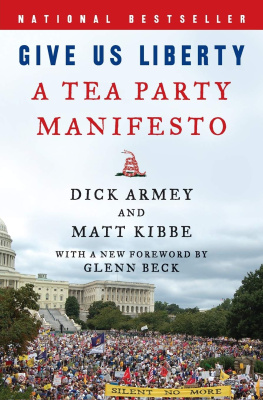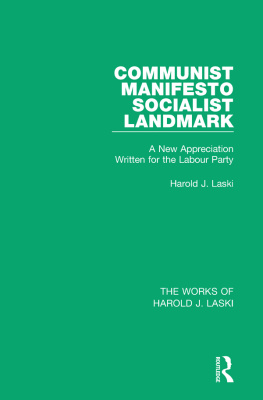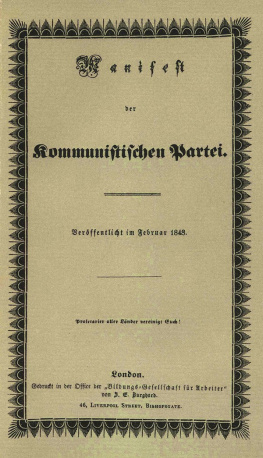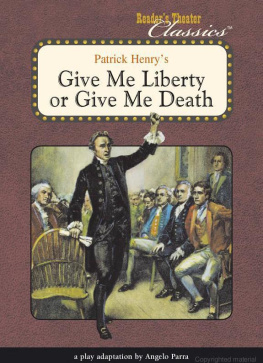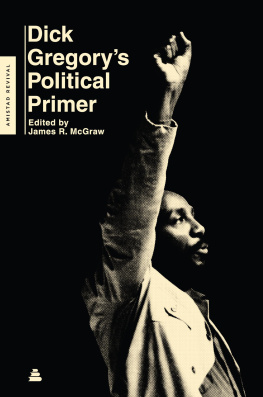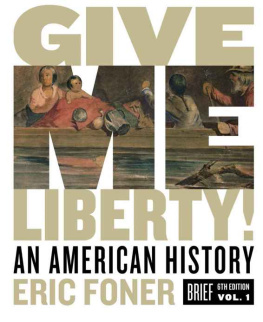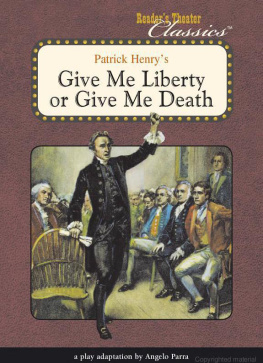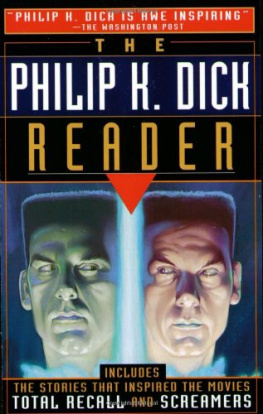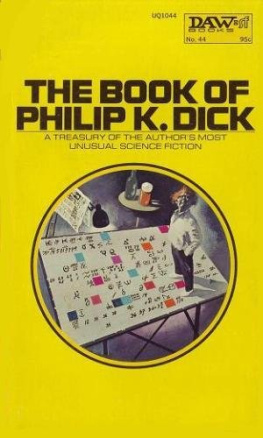To the sons and daughters of liberty who did not die with Sam Adams but are active and organizing across the country to protect our freedoms to this very day.
Now, we Americans understand freedom. We have earned it, we have lived for it, and we have died for it. This nation and its people are freedoms model in a searching world. We can be freedoms missionaries in a doubting world. But, ladies and gentlemen, first we must renew freedoms mission in our own hearts and in our own homes.
B ARRY G OLDWATER
T HE PENDULUM OF POLITICS is always swinging. Republicans gain seats, Democrats win them back, and the struggle continues. The one thing that seems inevitable no matter the party in office is the continued growth of government. Occasionally, however, a fresh jolt of conservative energy interrupts that growth. I have witnessed three conservative revolutions in my lifetime, each of which taught important lessons.
Barry Goldwater came first, offering a choice, not an echo. Ronald Reagan was next and proved that small-government conservatism was the best path to peace and prosperity. Under Reagan, we regained our national confidence and our economy flourished. A few years later came the third wave, the 1994 Republican Revolution in Congress and its Contract with America that resulted in the impossiblea balanced budget.
I was a student in Oklahoma, studying economics, when Barry Goldwater ran for president in 1964. Never had I heard a political figure speak so passionately on freedom, the genius of the Founding Fathers, and our enduring values as a nation.
That same summer I heard Ronald Reagans classic campaign speech, A Time for Choosing. During this time I was so engrossed in my studies, I almost never thought of politics. But Goldwater was different; and for the first time in my life I was excited and inspired to participate in the political process.
I did not think of myself as a conservative. I thought my belief in personal and economic freedom, respect for the Constitution, gratitude for those who served in the armed forces, and trust in my fellow citizen was just common sense. My beliefs and values were shaped by my upbringing. I was born in Cando, North Dakota, the fifth of eight children. My parents operated a rural grain elevator, and this is where I developed my interest in economics. I remember my parents quieting all the children down at one oclock every day so they could hear the grain market report coming in. Oats up, wheat down, corn holding firm. This was the market, supply and demand, at work.
It was also during this time I remember postWorld War II refugees from socialist Eastern Europe fleeing to the prairie. It struck me that people would leave their homeland and everything they knew to go someplace for freedom. I did not see anyone fleeing the United States to go in search of collectivism.
My father was an avid fisherman, and I would often join him for trips up north to Canada to fish for northern pike. The drive to our fishing camp passed through countryside dotted with painted barns straight from a Norman Rockwell canvas. But as soon as you crossed the border into Canada, I noticed the barns were unpainted. I wondered why Canadian farmers would allow their barns to degrade from exposure to the elements. The answer, I discovered, was government. At the time, Canada taxed painted buildings, so farmers left their structures exposed to avoid the penalty. These things make quite an impression on a child.
After a few years working as a lineman for a local utility, I decided to become the first member of my family to go to college. But I was stunned when the commonsense values I grew up with were militantly rejected by many on campus. It was during the Goldwater campaign that I learned of an elite who existed in government offices and college faculty lounges and who were hostile to the universal values of the American people. I could not believe that here in America a group of people believed they were entitled to redistribute wealth to satisfy their notions of social justice, regulate others lives, and understand my best interests better than I.
Years later, when I was the chairman of the economics department at North Texas State University (now the University of North Texas), I sat through a faculty meeting in which a professor claimed part of our job was to teach students how to emote. I was stunned. I simply wanted to teach economics and did not see why feelings should be taught in my classroom. It was time for me to find another line of work.
One beautiful Texas evening in 1984, I found myself watching C-SPAN. A procession of representatives were speaking from the House floor in opposition to the presidents fiscal policies. Their arguments were dangerously incorrectthey would doom our country to a collectivist quagmire. I figured Ronald Reagan could use reinforcements, so I decided to take a sabbatical year and run for Congress. In what is still considered a huge upset, I defeated the incumbent and went to work in Washington.
A S TIME PASSED, EACH boom gave way to a bust. The iron triangle of entrenched politicians, bureaucrats, and the motivated network of special interests was temporarily slowed but never defeated. It seems inevitable that as the state expands, freedom is eroded. Government growth continues, and each new effort to check its expansion faces a larger and larger challenge.
I believe we are at a turning point in our nations history, as the pendulum has swung far to the left. Trillion-dollar deficits, government control of health care, federal ownership of banks and auto companies, taxpayer-funded bailouts of irresponsible home owners, and attempts to control energy consumption have combined to push a nation conceived in liberty and devoted to free markets to bankruptcy, down what F. A. Hayek called the road to serfdom.
But I believe Americans are genetically opposed to big government. They wont accept it, and they have been joining with their fellow citizens in the streets to take America back. I believe this movement, the Tea Party movement, has the opportunity to break the boom-and-bust cycle and restore a constitutionally limited government and bring fiscal sanity to Washington.
R EPUBLICANS IN THE 1980S could not even dream of setting the legislative agenda. They had not been in a position of leadership since 1954 and had become complacent. Senior members of the party were satisfied if a Democratic chairman occasionally left them a few crumbs. Life was comfortable in the minority as long as you did not rock the boat. No one was accused of partisanship because the majority always got its way. Members received their perks, such as travel abroad and special banking privileges, and based their political careers on parochial pork projects.
Things began to change in the early 1990s, when a rebellious group of small-government backbenchers began a hostile takeover from within the Republican House caucus. We made life difficult for the establishment old bulls in the party because we thought they were too complacent. The Republican leadership was always having to apologize to the Democrats for us.
We believed it was time to bring restraint to Congress, and we set a goal of retaking the House. Newt Gingrich and I believed we would be successful in the 1994 elections if we were able to prove to the American people that we had a national policy vision. My office set about to draft a contract based on policies that were important to the American people and were blocked by the Democrat majority. Newt thought we should focus on ten items.
The Contract with America, as it later came to be known, outlined our platform of limited government. The contract nationalized the vision of the Republican Party in a way that unified our base and appealed to independents. We championed national issues that were good for all Americans, not just special interests. This vision was validated when Republicans took control of both houses of Congress.

